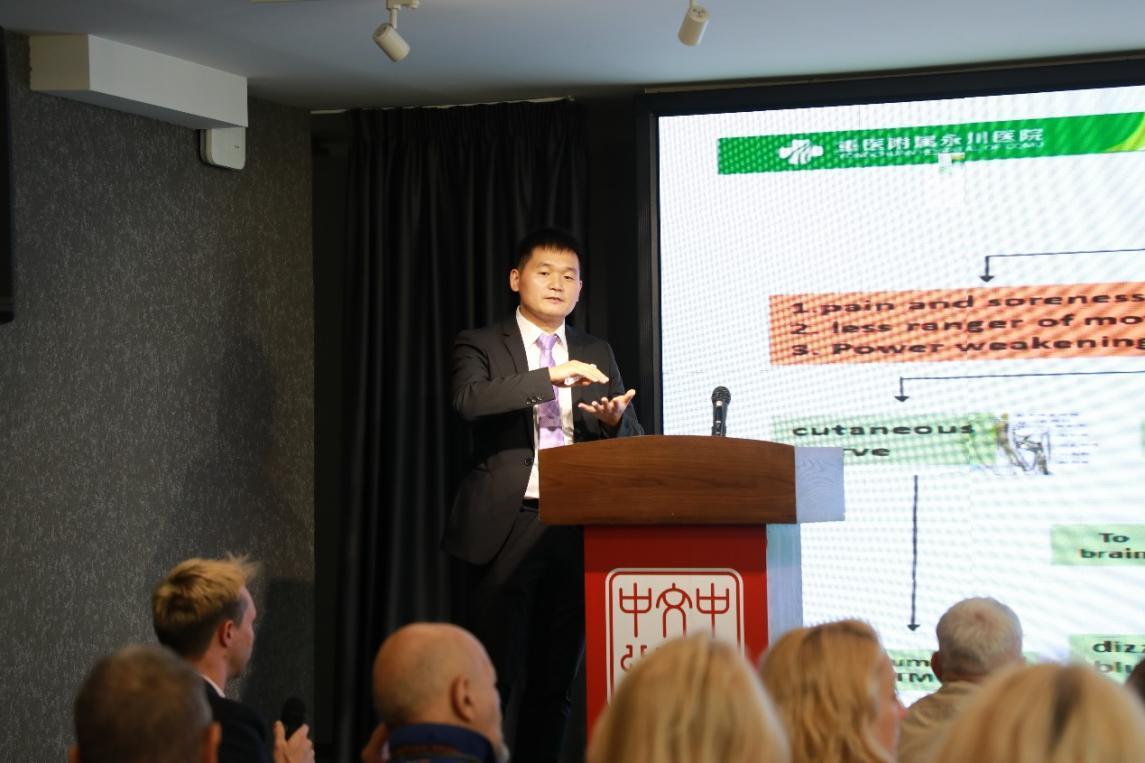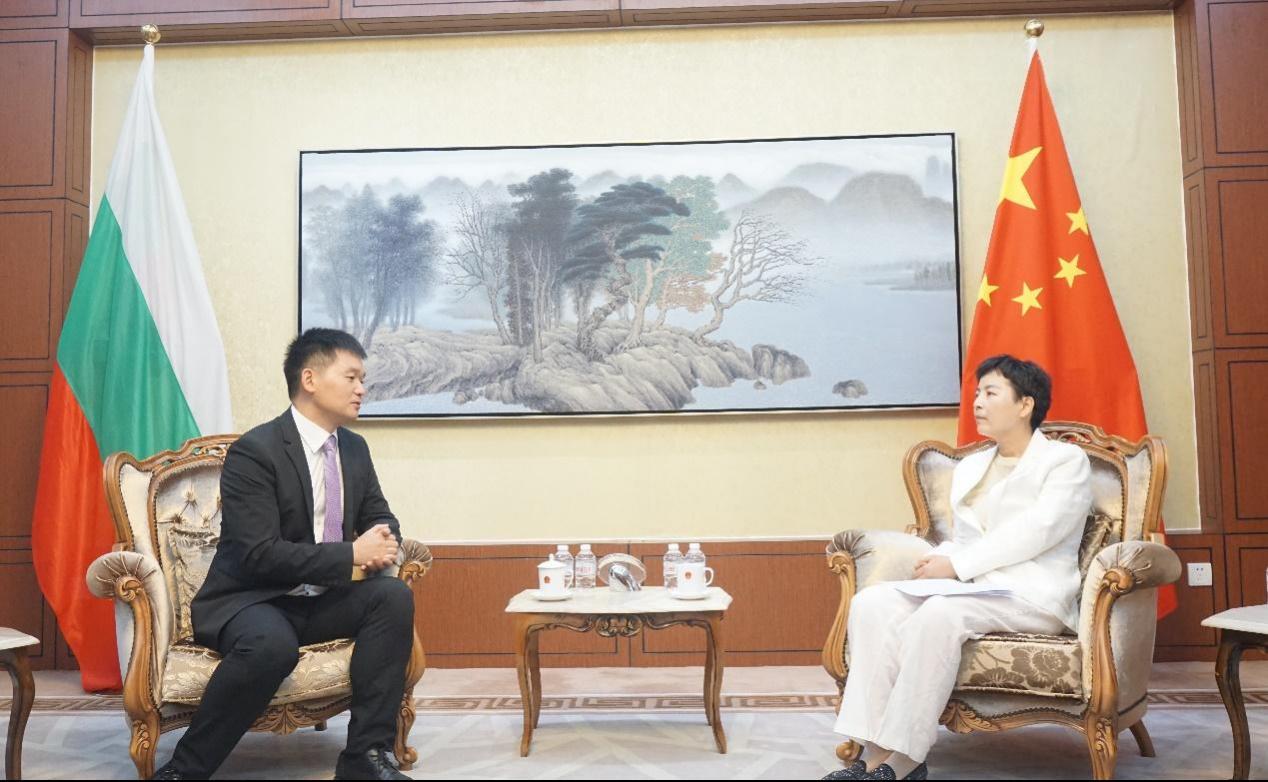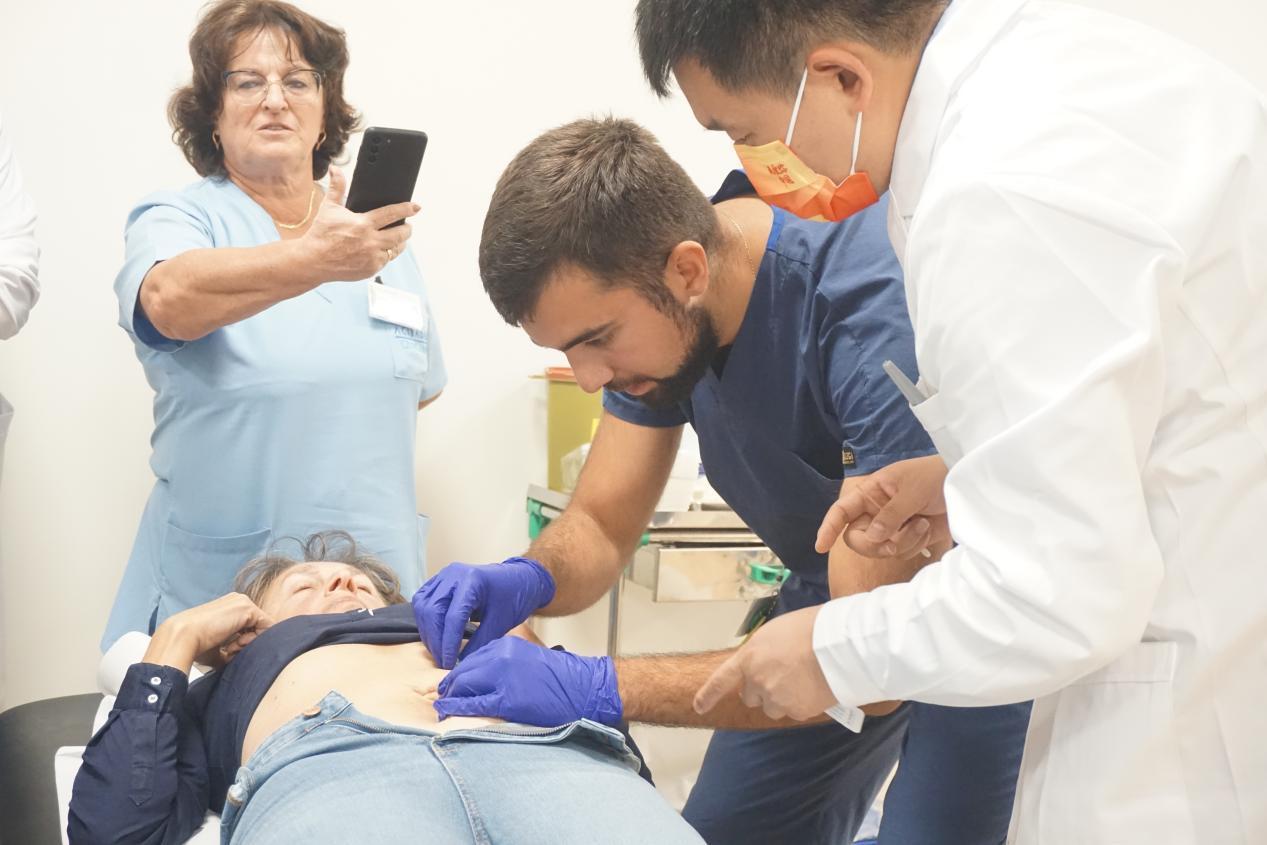Fu’s Subcutaneous Needle (FSN) Team of Yongchuan Hospital Visits Bulgaria for Academic Exchanges
From September 26 to October 5, 2024, a medical team specializing in the Fu’s Subcutaneous Needle (FSN) technique from Yongchuan Hospital Affiliated to Chongqing Medical University, led by Dr. Ma Kunlong, Deputy Director of the Department of Orthopedics, visited Bulgaria for academic exchanges. The team’s visit, hosted by Acibadem City Clinic Tokuda Hospital, included stops at the China Cultural Center in Sofia, the Orthopedic Hospital affiliated to the Sofia Medical University, and their host institution. The delegation also participated in a commemorative event celebrating the 75th anniversaries of both the founding of the People’s Republic of China and the establishment of diplomatic relations between China and Bulgaria, hosted by the Chinese Embassy in Bulgaria. During the event, they were received by Dai Qingli, the Chinese Ambassador to Bulgaria.
On September 27, the delegation attended a reception at the Chinese Embassy in Bulgaria, commemorating the 75th anniversaries of both the founding of the People’s Republic of China and the establishment of diplomatic relations between the two countries. The event strengthened their appreciation for the enduring China-Bulgaria friendship and bolstered their confidence in the success of their academic exchange program.

On September 28, the team presented an FSN-focused lecture and held a free clinic at the China Cultural Center in Sofia. Over 60 Bulgarian medical professionals and TCM enthusiasts participated in the events. The lecture, presented by Ma Kunlong, employed Western anatomical theory to elucidate the principles, therapeutic indications, and technical specifications of FSN. A live demonstration of the FSN techniques and equipment further enhanced the participants’ understanding of the efficacy and role of this approach.

Following the lecture, three members of the delegation provided FSN treatments to pre-registered Bulgarian participants free of charge. A long line of locals eagerly awaited their turn to experience FSN. Hong Hai, Director of the China Cultural Center in Sofia, said facilitating cultural exchange and promoting TCM are two priorities of the center. He lauded the delegation from Yongchuan Hospital for not only showcasing the depth and breadth of TCM but also for fostering cultural exchange between China and Bulgaria. The visit, he noted, has strengthened medical ties between the two countries. Looking forward, the center plans to partner with Yongchuan Hospital to offer FSN training courses, establishing a solid foundation for promoting this approach in Bulgaria.
On September 29, the delegation was received by Ambassador Dai Qingli at the Chinese Embassy in Bulgaria. Ambassador Dai congratulated the medical team on the success of their academic exchange program. and encouraged them to take advantage of opportunities for extensive academic exchanges and technical demonstrations at local hospitals or through other platforms. She urged them to establish long-term cooperative relationships with local institutions. Following the meeting, the team provided FSN treatments for over ten staff members at the embassy, who later enthusiastically commended the remarkable therapeutic effects of the therapy.

From September 30 to October 1, the delegation continued with their academic exchange program at the Orthopedic Hospital affiliated to the Sofia Medical University. They conducted lectures on the use of the FSN techniques in the treatment of chronic orthopedic conditions and offered complimentary clinic sessions Eighteen Bulgarian patients with chronic orthopedic conditions received FSN treatments. The free clinic sessions further bolstered awareness and appreciation for this therapy at the hospital. Dr. Valentin Angelov, Director of the Orthopedic Hospital, praised the FSN therapy for its significant potential in the treatment of chronic orthopedic conditions, noting that it is easier to learn and apply than traditional TCM acupuncture. Dr. Angelov expressed his eagerness to explore technical collaboration with Yongchuan Hospital in more medical fields, envisioning a shared commitment to advancing medical progress in both China and Bulgaria.

The final stop of the visit was Acibadem City Clinic Tokuda Hospital. During their time there, the team gained a comprehensive understanding of the operations of the hospital’s relevant departments, including Orthopedics, Anesthesiology, Neurology, Rehabilitation Medicine, Pediatrics, Urology, and Neurosurgery, and engaged in in-depth discussions with department directors. Deputy Director Ma Kunlong, Deputy Chief Physician Luan Fujun, and Chief Physician Cao Chunfeng delivered engaging presentations on “Theory, Process and Development of FSD,” “Clinical Application of FSD in Plantar Fasciitis,” and “Clinical Application of FSD in Knee Osteoarthritis,” respectively. The team also offered FSD treatments to fifteen pre-registered patients at the event, providing a clear demonstration of the application of the therapy. Many doctors at the hospital were eager to try the therapy and expressed their amazement at its remarkable effects. The President of Acibadem City Clinic Tokuda Hospital expressed a strong interest in collaborating with Yongchuan Hospital on medical exchanges across a broader range of fields. The two sides engaged in an in-depth discussion on potential future collaborations, with the hope of reaching a mutually beneficial agreement as quickly as possible.


This visit, which featured academic exchanges focused on FSD therapy and myopathy, effectively showcased the evolution of FSD and relevant clinical research findings. These academic exchanges fostered deeper mutual understanding and trust between China and Bulgaria in the medical field, aligning with Chongqing Medical University and Yongchuan Hospital’s commitment to the Belt and Road Initiative and the hospital’s goal of becoming a high-level, modern, international, research-focused institution. They also contributed to promoting the international development of TCM, elevating its cultural brand, and enhancing its global influence. Looking ahead, Yongchuan Hospital will continue collaborating with Bulgarian institutions, transforming the successful outcomes of this academic exchange program into concrete cooperative projects that benefit all parties.
